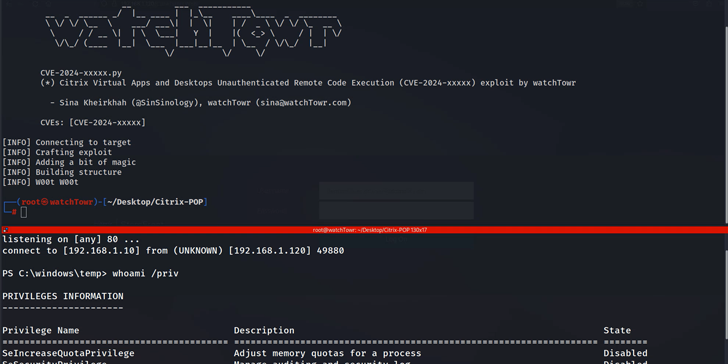SolarWinds Releases Patch for Critical Flaw in Web Help Desk Software
In the rapidly evolving landscape of cybersecurity, staying ahead of potential threats is crucial for organizations of all sizes. Recent disclosures from major software providers SolarWinds and Palo Alto Networks have brought to light several critical vulnerabilities that demand immediate attention from IT security professionals and system administrators.
The discovery of these vulnerabilities serves as a stark reminder of the importance of regular software updates and proactive security measures. As we explore each vulnerability, we’ll provide technical details, discuss potential impacts, and offer guidance on mitigating the associated risks.
Of particular concern is the addition of the SolarWinds vulnerability (CVE-2024-28986) to the U.S. Cybersecurity and Infrastructure Security Agency’s (CISA) Known Exploited Vulnerabilities (KEV) catalog. This development underscores the urgent need for organizations to take action, as there is evidence of active exploitation in the wild.
Technical Details:
- SolarWinds Web Help Desk Vulnerability
CVE ID: CVE-2024-28986
CVSS Score: 9.8 (Critical)
Vulnerability Type: Java Deserialization Remote Code Execution
Affected Product: SolarWinds Web Help Desk (versions 12.8.3 and earlier)
Impact: Arbitrary code execution on vulnerable instances
This critical vulnerability in SolarWinds Web Help Desk software could allow an attacker to execute arbitrary code on affected systems. While initially reported as an unauthenticated vulnerability, SolarWinds has stated that they were unable to reproduce the issue without authentication after thorough testing.
- Palo Alto Networks Cortex XSOAR Vulnerability
CVE ID: CVE-2024-5914
CVSS Score: 7.0 (High)
Vulnerability Type: Command Injection
Affected Product: Cortex XSOAR CommonScripts (versions before 1.12.33)
Impact: Arbitrary command execution within integration containers
This high-severity vulnerability in Palo Alto Networks Cortex XSOAR could result in command injection and code execution. The issue specifically affects the CommonScripts pack and could be exploited by an unauthenticated attacker.
- Additional Palo Alto Networks Vulnerabilities
- a) GlobalProtect App Privilege Escalation
CVE ID: CVE-2024-5915
CVSS Score: 5.2 (Medium)
Vulnerability Type: Privilege Escalation
Affected Product: GlobalProtect app on Windows devices
Impact: Local users can execute programs with elevated privileges
b) PAN-OS Information Exposure
CVE ID: CVE-2024-5916
CVSS Score: 6.0 (Medium)
Vulnerability Type: Information Exposure
Affected Product: PAN-OS software
Impact: Local system administrators can access secrets, passwords, and tokens of external systems
Indicators of Compromise (IoCs):
While specific IoCs for these vulnerabilities have not been publicly disclosed, organizations should be on the lookout for:
- Unusual outbound network connections from affected systems
- Unexpected process executions or file creations on Web Help Desk servers
- Anomalous activity in Cortex XSOAR integration containers
- Suspicious privilege escalation attempts on Windows devices running GlobalProtect
- Unauthorized access attempts to sensitive information in PAN-OS configurations
Detection Rules:
To detect potential exploitation attempts, consider implementing the following detection rules:
- SolarWinds Web Help Desk (CVE-2024-28986):
- Monitor for unexpected Java processes or command executions on Web Help Desk servers
- Look for unusual network traffic patterns or connections from Web Help Desk instances
- Implement file integrity monitoring on affected servers
- Palo Alto Networks Cortex XSOAR (CVE-2024-5914):
- Monitor for unexpected command executions within Cortex XSOAR integration containers
- Implement logging and alerting for use of ScheduleGenericPolling or GenericPollingScheduledTask scripts
- Look for unusual network connections or data transfers initiated by Cortex XSOAR
- GlobalProtect App Privilege Escalation (CVE-2024-5915):
- Monitor for unexpected privilege escalation events on Windows devices running GlobalProtect
- Implement process execution monitoring to detect unusual activities with elevated privileges
- PAN-OS Information Exposure (CVE-2024-5916):
- Monitor access logs for suspicious attempts to retrieve sensitive information from PAN-OS configurations
- Implement alerting for unexpected changes to secrets, passwords, or tokens stored in PAN-OS firewalls
The SolarWinds Web Help Desk Vulnerability: A Critical Threat
The discovery of CVE-2024-28986 in SolarWinds Web Help Desk software has sent shockwaves through the cybersecurity community. This critical vulnerability, with a CVSS score of 9.8, represents a significant risk to organizations relying on this popular IT service management tool.
At its core, this flaw is a Java deserialization remote code execution vulnerability. Deserialization vulnerabilities occur when an application deserializes untrusted data without proper validation. In this case, an attacker could potentially craft malicious serialized data that, when processed by the Web Help Desk application, would allow for the execution of arbitrary code on the host machine.
The severity of this vulnerability cannot be overstated. If successfully exploited, an attacker could:
- Execute malicious code on the affected Web Help Desk server
- Gain unauthorized access to sensitive information stored in the help desk system
- Use the compromised server as a launching point for further attacks within the network
- Disrupt IT service management operations by tampering with or disabling the Web Help Desk software
It’s worth noting that while the vulnerability was initially reported as unauthenticated, SolarWinds has stated that they were unable to reproduce the issue without authentication after thorough testing. This suggests that the risk may be somewhat mitigated in environments where strong authentication measures are in place. However, given the critical nature of the vulnerability, it’s crucial for all users of the affected software to take immediate action to patch their systems.
The addition of this vulnerability to the CISA Known Exploited Vulnerabilities (KEV) catalog is particularly alarming. This designation indicates that there is evidence of active exploitation in the wild, raising the urgency for organizations to implement patches and mitigation measures. Federal agencies are required to apply the fixes by September 5, 2024, but all organizations using the affected software should treat this with the highest priority.
Palo Alto Networks Vulnerabilities: Expanding the Threat Landscape
While the SolarWinds vulnerability has garnered significant attention, the vulnerabilities disclosed by Palo Alto Networks also warrant careful consideration.
The high-severity vulnerability in Cortex XSOAR (CVE-2024-5914) is particularly concerning. Cortex XSOAR is a widely-used security orchestration, automation, and response (SOAR) platform. The discovered command injection vulnerability could allow an unauthenticated attacker to execute arbitrary commands within the context of an integration container.
This vulnerability specifically affects the CommonScripts pack, which is widely used in Cortex XSOAR deployments. The potential for unauthenticated command execution in a SOAR platform is particularly dangerous, as these systems often have broad access to various security tools and sensitive data within an organization.
If exploited, an attacker could:
- Execute malicious commands within the Cortex XSOAR environment
- Potentially access or manipulate security-related data and configurations
- Use the compromised SOAR platform as a pivot point to target other systems in the network
- Disrupt security operations by interfering with automated response playbooks
The additional vulnerabilities disclosed in the GlobalProtect app and PAN-OS software, while rated as moderate severity, should not be overlooked. The privilege escalation vulnerability in the GlobalProtect app (CVE-2024-5915) could allow a local attacker to execute programs with elevated privileges on Windows devices. This type of vulnerability is often used by attackers to increase their foothold on a compromised system and perform more damaging actions.
The information exposure vulnerability in PAN-OS (CVE-2024-5916) is equally concerning, as it could allow a local system administrator to access secrets, passwords, and tokens of external systems. This type of exposure could lead to further compromise of connected systems and networks, potentially expanding the scope of an attack significantly.
Impact on Organizations
The disclosure of these vulnerabilities has far-reaching implications for organizations using the affected products:
- Increased Risk of Data Breaches: Exploitation of these vulnerabilities could lead to unauthorized access to sensitive data, potentially resulting in data breaches and associated legal and financial consequences.
- Operational Disruption: Successful attacks could disrupt critical IT and security operations, leading to downtime and loss of productivity.
- Reputational Damage: Organizations that fall victim to attacks exploiting these vulnerabilities may face significant reputational damage, especially if customer data is compromised.
- Compliance Issues: For organizations in regulated industries, failure to promptly address known vulnerabilities could result in compliance violations and potential fines.
- Increased Security Workload: IT and security teams will need to dedicate significant resources to patching, monitoring, and ensuring the security of affected systems.
- Potential for Supply Chain Attacks: Given the nature of these products, especially SolarWinds Web Help Desk and Cortex XSOAR, compromised systems could be used as a springboard for supply chain attacks, affecting customers and partners.
Remediation Steps:
- Patch Affected Systems: Update SolarWinds, Cortex XSOAR, GlobalProtect, and PAN-OS; prioritize by September 5, 2024.
- Security Assessment: Review systems for compromise; consider third-party help.
- Network Segmentation: Isolate critical systems and limit network communication.
- Authentication Controls: Implement MFA, enforce least privilege, and audit accounts.
- Monitoring and Alerting: Enhance logging, monitoring, and real-time alerts.
- Vulnerability Assessments: Regularly scan and prioritize vulnerability fixes.
- Staff Training: Provide security training and clear reporting channels.
- Incident Response Plans: Update and test response plans; ensure offline backups.



